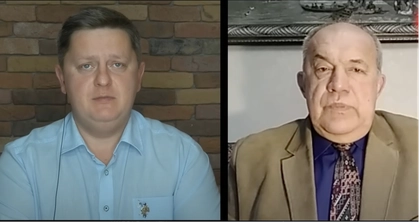Russia's children's rights commissioner on Wednesday announced a deal with Ukraine to exchange almost 50 children displaced by Moscow's invasion but a Ukrainian official later declined to confirm the agreement.
Kremlin official Maria Lvova-Belova announced "for the first time in a face-to-face format, we held talks with the Ukrainian side. Twenty-nine children are due to go to Ukraine and 19 to Russia".
JOIN US ON TELEGRAM
Follow our coverage of the war on the @Kyivpost_official.
Moscow has been accused of forcibly taking Ukrainian children into Russian territory during its full-scale offensive, with Lvova-Belova wanted by the International Criminal Court (ICC) on charges related to those allegations.
But in back-to-back media appearances, as Russian and Ukrainian officials met with Qatari mediators in Doha, the Ukraine parliament's human rights commissioner Dmytro Lubinets told AFP he "can't confirm the information."
The Ukrainian official added the two countries "don't have any direct communication on this case."
Since July 2023, Qatar has helped bring back dozens of Ukrainian children taken to Russia and occupied territories during the two-year war.
Ukrainian President Volodymyr Zelensky said 16 Ukrainian children, who accompanied the country's delegation and had benefited from previous exchanges, were "in Qatar for medical, mental, and social recovery."
"All of them had previously been forcibly deported to Russia, but thanks to our friendly Qatar's mediation efforts, they have been released," Zelensky added without addressing Russia's claim that 48 children were involved in an exchange, including 19 that would go to Russia.

Holiday Spirit Thrives Among Ukrainians Despite War, Study Finds
Ukraine believes Russia has illegally taken more than 19,000 of its children since the start of the 2022 invasion, of which fewer than 400 have been returned.
Moscow denies that charge, saying it has transferred children for their safety away from fighting zones.
The fate of the children has been highly sensitive in Ukraine since the war began.
Some of the children's parents were killed, while others were separated from carers by the fast-moving front lines at the start of the invasion.
Some were living in Ukrainian orphanages in areas Russia then occupied.
Lubinets said his delegation and Qatari mediators had discussed, in addition to the return of Ukrainian children, the issue of Ukrainian civilian detainees held in Russia and the "potential role of Qatar to be mediator between Ukraine and the Russian Federation on this."
'Joyful moment'
On a sea-view terrace at the plush Doha hotel where the meetings took place, Qatar's International Cooperation Minister Lolwah Al-Khater spoke with the visiting beneficiaries of the past exchanges, in at times tearful conversations with the children and their guardians.
One, Dymtro Manilov, had been reunited with his family in Kyiv as part of the Qatar-mediated scheme after his mother, still held by Russia, was captured as a prisoner of war in Mariupol in 2022.
"We were so happy because he was able to come back to Ukraine, his home," the 11-year-old's guardian Valentina Savaina told AFP through a translator.
"We are very hopeful that soon we will be able to reunite with his mother, we remain hopeful," Savaina, 35, added.
Al-Khater said the families' visit marked "a very joyful moment for us here on Qatar and a milestone."
Qatar has led mediation between Israel and Hamas in recent months for a ceasefire and prisoner exchange in Gaza, and negotiated the exchange of US and Iranian prisoners in September.
The Qatari minister said these behind-the-scenes talks, as with Russia and Ukraine, were "one of the main pillars of our foreign policy" and indicated a larger role for Doha in discussions between Moscow and Kyiv in the future.
"When the time comes, we might be discussing broader portfolios," she said without elaborating on the possible areas for expanding mediation.
You can also highlight the text and press Ctrl + Enter






